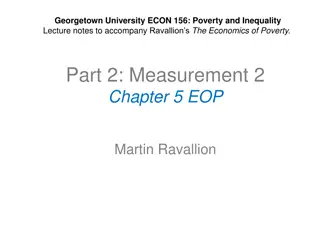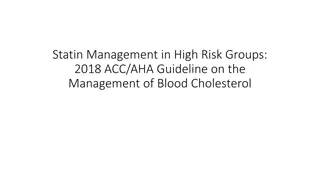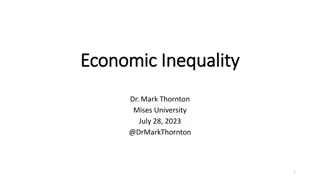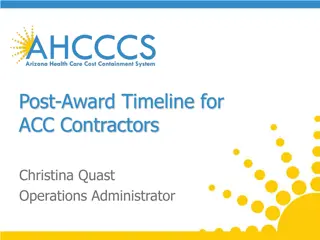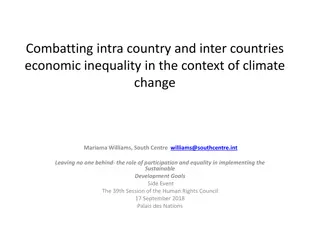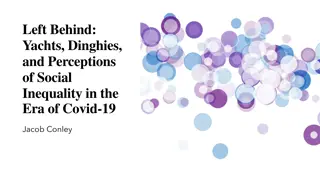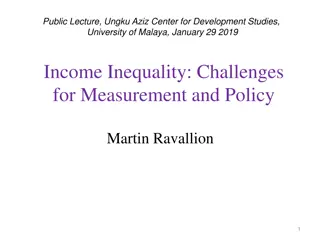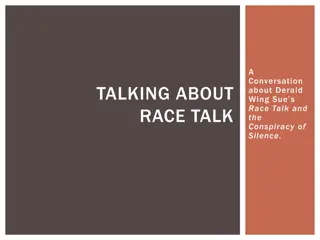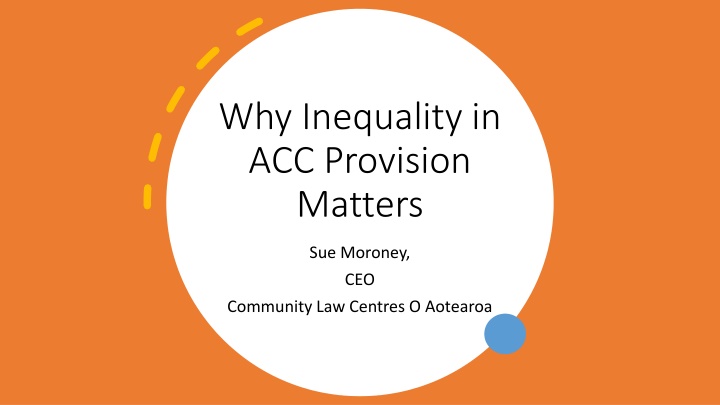
Gender Disparities in ACC Provision and Impact on Justice
Understanding the significance of addressing inequality in ACC provision is crucial, as it affects access to resources, legal aid representation, and overall fairness in decision-making. Monitoring these disparities is essential to ensure equitable treatment for all individuals, including those disproportionately affected. Gender biases in ACC decisions further highlight the need for reform to support vulnerable populations and promote a just society.
Download Presentation

Please find below an Image/Link to download the presentation.
The content on the website is provided AS IS for your information and personal use only. It may not be sold, licensed, or shared on other websites without obtaining consent from the author. If you encounter any issues during the download, it is possible that the publisher has removed the file from their server.
You are allowed to download the files provided on this website for personal or commercial use, subject to the condition that they are used lawfully. All files are the property of their respective owners.
The content on the website is provided AS IS for your information and personal use only. It may not be sold, licensed, or shared on other websites without obtaining consent from the author.
E N D
Presentation Transcript
Why Inequality in ACC Provision Matters Sue Moroney, CEO Community Law Centres O Aotearoa
Inequality Issues Inequality Issues Access to Resources Cover declined Rehabilitation Home Help Wage Support (impacted by gender/ethnicity wage gap) Access to Justice in Reviewing/Appealing ACC Decisions Legal aid Representation (impacted by gender/ethnicity wage gap) Self Representation vs The Corporation.
Inequality Monitoring Inequality Monitoring ACC doesn t report on gender or ethnic make-up of those accessing ACC provision Little information publicly available How do we know that those already disadvantaged aren t suffering further disadvantage? How do we know that we are meeting Te Tiriti O Waitangi, Bill of Rights, International Convention (eg CEDAW) commitments? What about that decent society and a fair go?
2017 2017- -18 Gender Stats 18 Gender Stats Just 37% of ACC $$ for females and 63% for males Work = 21% female; 79% male Sports = 27% female; 73% male Motor Vehicles = 28% female; 72% male Treatment Injuries = 47% female; 53% male Rate of claims being declined was higher for females Work = 36% higher for females (7.6% female declines; 5.6% male declines) Sports = same rate of decline for females and males; Motor Vehicles = 19% higher for females Other = 32% higher for females
Gender Bias in ACC Decision Gender Bias in ACC Decision- -Making Making No subsequent wage support if injury/accident occurred when not in paid employment ACC vs Vandy High Court 2010 decision Disproportionate impact on women more likely to be raising children ACC decision in 2020 to stop cover for many birthing injuries Exclusively impacts on women Individual Claim decisions
Its easier to get ACC funding for a rugby injury or an accident from a drunken night out than it is for an injury sustained during birth


